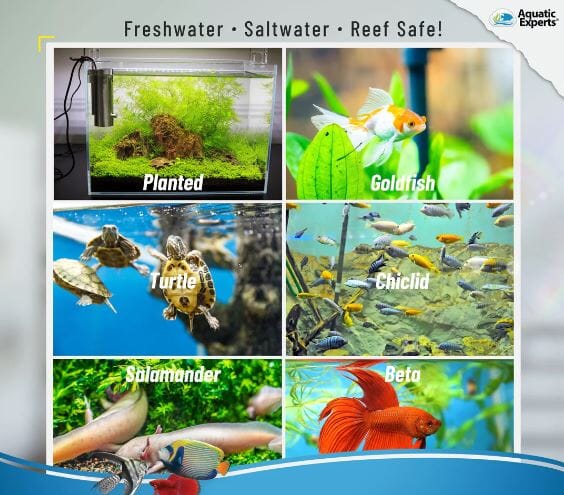Taking care of aquatic life isn't just about providing them with food and clean water, it involves a deeper understanding of the delicate balance of their environment. The primary focus of this article is the essential water additives for healthy aquatic life which can play a significant role in creating a nurturing habitat for your fish and other aquatic species.
The Vital Role of Oxygen in Aquatic Life
Just like any other living organism, fish need oxygen to survive. The oxygen levels in the water greatly affect the health of your aquatic life. Low oxygen levels can lead to fish becoming sluggish and, in extreme cases, can result in death.
Ways to Maintain Optimum Oxygen Levels
Maintaining optimal oxygen levels is important. This can be done by ensuring good water flow, maintaining the right water temperature, and regularly checking oxygen levels.
Aquatic life needs essential water additives to maintain a healthy environment.
Approximately 70% of the Earth’s surface is covered in water, and the health of aquatic life is essential for the planet’s overall health.
Types of Essential Water Additives
Different types of water additives cater to the needs of different fish species. These can range from compounds that adjust pH levels, like sodium bicarbonate, to others, like potassium permanganate and sodium chloride, that help control disease.

The Role of Each Type of Water Additive
Each additive has a specific role in maintaining the health and vitality of the fish. For example, calcium carbonate, magnesium sulfate, and others help to replace essential minerals and keep the water hardness at the desired level.
How to Monitor Water Quality
Regular monitoring of water quality is essential. This involves checking parameters like pH, ammonia levels, nitrate levels, and overall hardness. High-quality water testing kits are readily available in the market for this purpose.
Correcting Imbalances in Water Quality
When imbalances in water quality are detected, the right additives should be used to correct them. For example, sodium thiosulfate is used to neutralize chlorine in the water, while cupric sulfate and ferric sulfate can be used to deal with algal blooms.
Dealing with Excessive Ammonia Levels
Excessive ammonia levels can be harmful to fish. Additives such as zeolite can help absorb excess ammonia, thereby reducing its concentration in the water.
Prevention and Treatment of Algae Blooms
Algae can become a problem if left unchecked. Copper sulfate and hydrogen peroxide are two commonly used additives that can prevent and treat algae blooms.
Importance of Maintaining the Right Water Temperature
The temperature of the water can significantly impact the well-being of the fish. If the water is too warm or too cold, it can stress the fish and make them more susceptible to disease.
Adjusting Temperature Based on Aquatic Species
Different species of fish require different temperatures. Knowing the right temperature range for your specific species and maintaining it is crucial.
Role of Nutrients in Aquatic Life Growth
Nutrients play an essential role in the growth of aquatic life. Certain water additives can supplement the diet of the fish and provide them with the necessary vitamins and minerals.
Ensuring Balanced Nutrition through Water Additives
By adding the right supplements, you can ensure that your aquatic life is getting a balanced diet. These include iodine for crustaceans and marine fish, iron and manganese for planted aquariums, and many others.
Frequently Asked Questions
How can I adjust the water temperature based on my fish species?
Different species of fish require different temperatures. It is important to know the right range for your specific species and maintain it using a reliable aquarium heater.
What role do nutrients play in the growth of aquatic life?
Nutrients are vital for the growth of aquatic life. Some water additives supplement the diet of the fish and provide the necessary vitamins and minerals.
What are some essential water additives for nutrient supplementation?
Iodine is essential for crustaceans and marine fish, and iron and manganese are important for planted aquariums. These nutrients can be provided via specific water additives.




